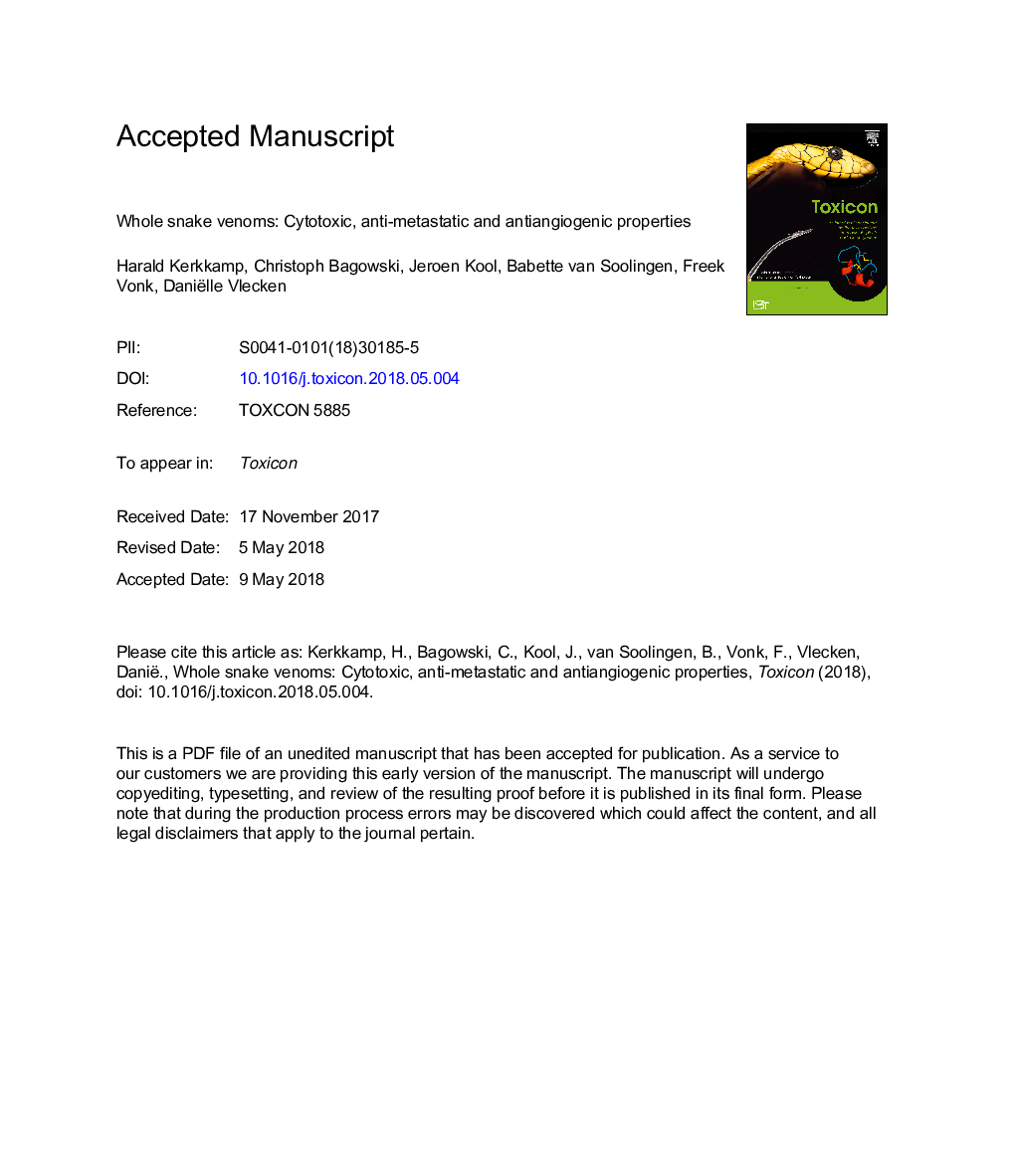| Article ID | Journal | Published Year | Pages | File Type |
|---|---|---|---|---|
| 8394051 | Toxicon | 2018 | 44 Pages |
Abstract
Currently, biological and organic substances are screened in order to find a new generation of therapeutics active against cancer. Previous research has identified promising candidate peptides in snake venom. In this study, venoms from different snake species (Naja annulifera, Naja kaouthia, Ophiophagus hannah and Echis carinatus) were screened for potential anti-cancer properties using pancreatic tumour cells as the assay system. The cells were incubated with venom and then subjected to the following analyses: (i) in vitro cell death (ii) in vitro migration (iii) in vivo dissemination and (iv) in vivo angiogenesis. For the in vivo assays, the cells, after incubation and labelling, were transplanted into the yolk sac of zebrafish embryos for motility and angiogenesis. The results showed strong effects in cells treated with venoms from Ophiophagus hannah and Echis carinatus in the in vitro assays. In the in vivo assays, venom derived from Ophiophagus hannah had the most potent effects with respect to angiogenesis. These venoms might therefore be considered as candidates for further studies.
Related Topics
Life Sciences
Biochemistry, Genetics and Molecular Biology
Biochemistry, Genetics and Molecular Biology (General)
Authors
Harald Kerkkamp, Christoph Bagowski, Jeroen Kool, Babette van Soolingen, Freek J. Vonk, Daniëlle Vlecken,
